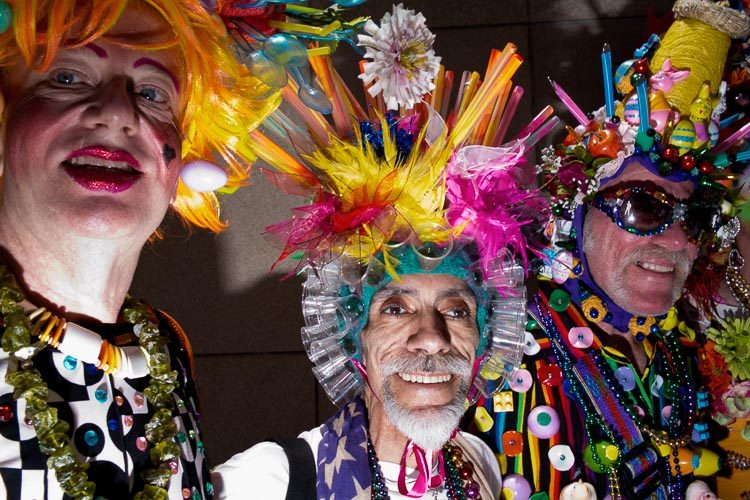SUMMARY
This is AI generated summarization, which may have errors. For context, always refer to the full article.
 After the Supreme Court of the United States’ (SCOTUS) decision to legalize same-sex marriage on June 26th, my Facebook page metamorphosed into a sea of rainbows. When Rappler came out with articles and comments in support of the ruling, I jumped out of my chair and danced, proud that I write for a publication that supports the LGBT community and gives them a platform to speak.
After the Supreme Court of the United States’ (SCOTUS) decision to legalize same-sex marriage on June 26th, my Facebook page metamorphosed into a sea of rainbows. When Rappler came out with articles and comments in support of the ruling, I jumped out of my chair and danced, proud that I write for a publication that supports the LGBT community and gives them a platform to speak.
However, the many comments left on Rappler’s Facebook page reflected what a recent poll revealed about Filipinos’ attitudes towards marriage equality.
That 70% of Filipinos “strongly disagree” with same-sex marriage did not surprise me. I am not shocked by many netizens’ comments’ use of puerile language (grown-ups actually writing “ewwww” and “kadiri” (gross), homophobic slurs, and fire-and-brimstone references to express their bigotry.
The many comments which put gay marriage in the same category as incest, polygamy, and bestiality are so appalling and ridiculous that all I can do is shake my head. I do not think any article, however articulate, or a conversation, no matter how logical, will change their minds. I don’t pay much, if any, attention to those statements.
However, the posts that do affect me are the ones that sound a little something like this: “I love my gay friends but I do not think they should have the right to marry. That’s going too far” or “I respect the gays [sic] but they’re looking for special treatment.” It especially baffles me when the commentator’s profile photo is of someone married or in a relationship.
Saying “I love you but” (or the religious equivalent “Love the sinner but hate the sin”) is not love. To argue that your LGBT friends and family should not be allowed to marry is to withhold from them a celebration and an institution that can potentially bring their lives more depth and meaning. I do not understand how you can invite your gay friends and family to your heterosexual wedding and, in the same bouquet toss, say, “You should not be married. You can’t have what I enjoy.”
It is a failure of empathy and an absence of compassion.
When I met my husband almost five years ago, my body could not contain its happiness. I posted photos of him on Facebook. I invited him to the Philippines where I introduced him to friends I’ve known since I was 5 years old. 
Suddenly I, formerly uncomfortable with PDA, found myself kissing him on train platforms and dotting rent checks with hearts. After he stepped on glass (Mazel tov!) at our wedding last summer, we danced down the aisle to Michael Franti and Spearhead’s “Say Hey! (I Love You).”
With him, the world shimmers a little more and, as the popular song goes, I’m so excited, I just can’t hide it.
I want all my friends to be able to express their love, shamelessly and ecstatically, without limit. I want everyone to have the freedom to love openly and, if they choose, to make their relationship legal.
Though I’ve considered myself a straight ally for a long time, the irony is that it’s because of my big, phat love for my husband that I’ve become so openly passionate about marriage equality.
It’s because of our marriage that I became wild with joy when the SCOTUS ruling was announced. I understood to the core what Justice Kennedy meant when he read, In forming a marital union, two people become something greater than once they were.”
Ruling strengthens marriage
My love for him is loud and public and our marriage certificate allows us to do the more prosaic, too, like file joint income tax returns. We are legally family. (Before 1967 with the case Loving v. Virginia, our interracial marriage would have been considered a felony in many US states; religion, history, and science were also used to justify anti-miscegenation laws.)
The SCOTUS ruling doesn’t take away from our marriage. It strengthens it by giving all our friends and family, regardless of their residence or sex, the opportunity to have their marriage recognized in all 50 states. How incredible, as New York Times columnist Frank Bruni writes, that “[f]rom the highest of this nation’s perches, in the most authoritative of this nation’s voices, a majority of justices told a minority of Americans that they’re normal and they belong – fully, joyously, and with cake.”
I do not think that the Philippines will recognize same-sex marriage anytime soon.
We have a long way to go and it starts with recognizing that though the Philippines boasts telenovelas with gay characters, transgender beauty pageants, and sold-out concerts of gay icons, the cultural reality is that our country is not as open or as kind to the LGBT community as our entertainment pages might suggest.
We call ourselves a romantic country that celebrates love – but the majority of our citizens believe that only traditional, hetereosexual cisgendered pairs should have the right to get past the velvet rope and only if they’re dressed right.
The summer before I started my ninth grade confirmation classes, I saw the romantic comedy “The Butcher’s Wife,” a silly romp that explored Aristophanes’ speech on love from Plato’s Symposium. On May 8, 1993, I wrote in my diary, “A wind swept the world and separated them like clams in a half shell. Anyway, there’s always someone right for someone else… Who’s my other half?” I was only 14 writing in Saudi Arabia and already wondering what my future held in store for me, with no idea that my future husband was graduating from college on the other side of the planet.
My middle school question followed me through adulthood. It is a universal yearning.
In Aristophanes’ story, which the musical Hedwig and the Angry Inch summarizes in the haunting song “The Origin of Love,” there were three sexes: male, female, and androgynous. Zeus split these humans, which originally had two heads, two sets of arms, legs, and genitalia, into two, leaving each longing and searching for his or her other half. I tell my students about it every year. The myth changed me.
My views on romantic love, homosexuality and, later, gay marriage were shaped by a movie that received a 21 percent on the movie-rating website Rotten Tomatoes. The movie, which stars Demi Moore and Jeff Daniels, includes a subplot about two women who fall in love. Except for a brief scene I remembered from the movie Personal Best, I hadn’t, at that point, seen a movie about or with lesbian characters.
But I did not wonder about the politics or the so-called morality of the women’s relationship.
I was simply happy that all the characters, despite geography, time, and gender, eventually found love – which, in this crazy and short life, is its own beautiful, stunning miracle. – Rappler.com
Kristine Sydney is a private high school English teacher in the United States, where she has lived for 20 years. Born in the Philippines and raised in Saudi Arabia, she attended boarding school and college in the US, where she practiced her Filipino by reading Liwayway. She writes about immigration, Air Supply adoration, and her intercultural relationship on her blogkosheradobo.com. Follow her on Twitter @kosheradobo.
Read previous articles from this author
- What’s a ‘real Filipino’ anyway?
- A wishlist for #TheLeaderIWant: 6 things
- Philippine mall culture: A balikbayan’s perspective
- Why I can’t watch Pacquiao vs Mayweather
- Why the petition vs balut made me happy
- My problem with the DOH’s HIV report
- In praise of the rebel
- The sanctity of divorce
- In praise of the rebel
- I learned to be a woman when I was 5
- Krisel’s speech must disturb the peace
- To my #SHEro: My mother who taught me beauty
- Taking off my shoes: ‘How clean is the dirt in America?’
- Pacquiao ‘insult’ a cultural misunderstanding
- How asking ‘Are you Filipino?’ can save a life
- Our interracial and interfaith marriage: Yes, color matters
Add a comment
How does this make you feel?
There are no comments yet. Add your comment to start the conversation.